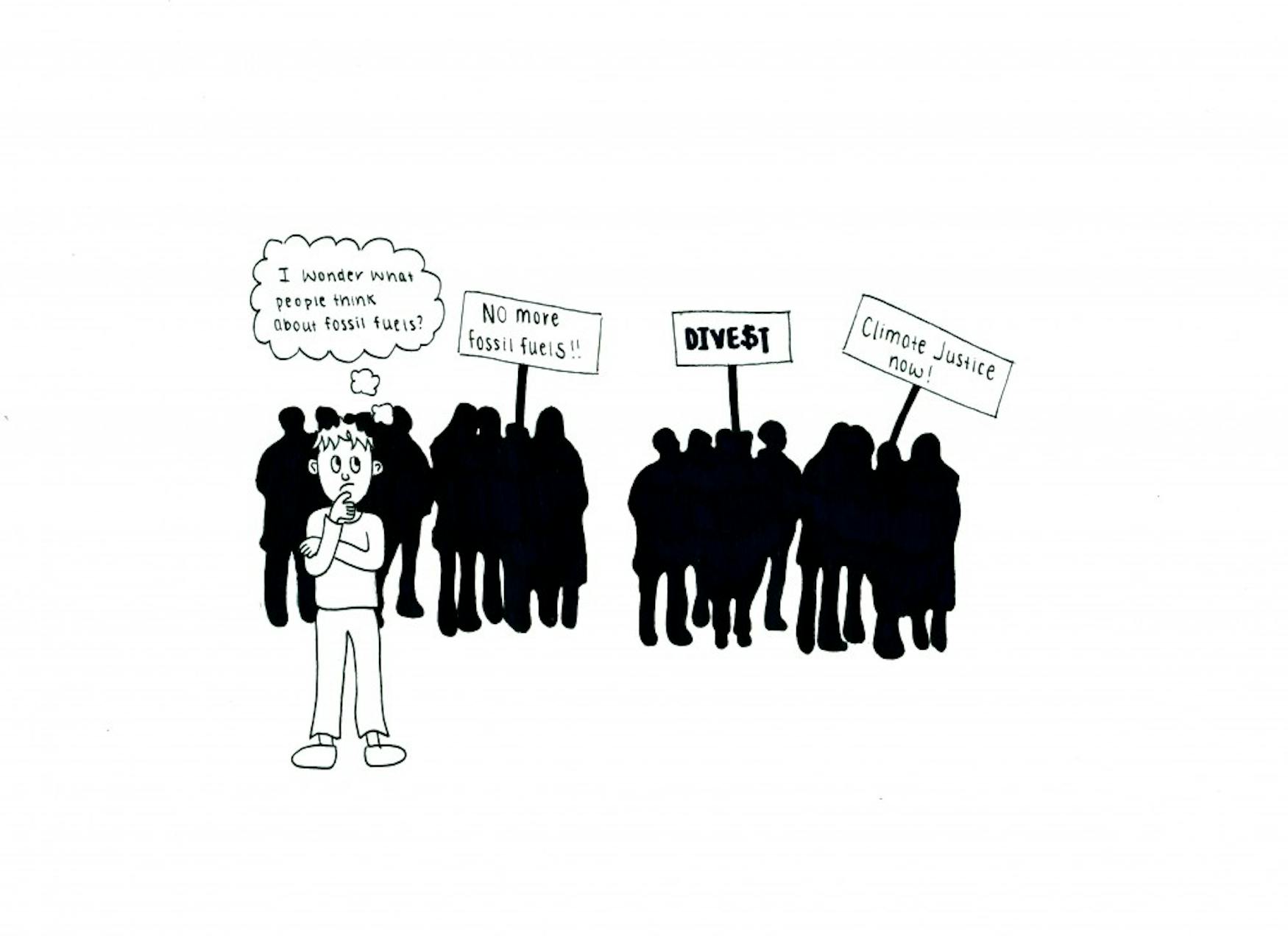EDITORIAL: Recognize student divestment attempts
Early last week, students and faculty members representing the group “Brandeis Climate Justice” staged several public events to protest the University’s continued investment in Fossil Fuels. Their efforts are part of a long-standing endeavor to encourage the Board of Trustees to make a decision to divest.
With an overwhelming majority of students who participated in a 2013 poll saying they support divestment from the fossil fuel industry and persistent displays of community support for multiple years, the lack of serious discussion from the Board of Trustees about the issue amounts to an apathy that does not match the student body’s clear interest, and the Board of Trustees should form a public opinion on the matter.
In the Brandeis University as a Responsible Investor General Guideline, which was published in April of 1973, the Board of Trustees outline one of the general arguments against divestment from any cause. They write, “[A] university’s power to influence corporate action, while not negligible, is nevertheless quite limited. The amount of funds available to Brandeis University’s portfolio managers is too small to cause economic detriment to a corporation by deciding to refuse to buy its stock, or by deciding to sell its stock, if already owned.” Since 1973, our understanding of climate change has dramatically changed, and it behooves the Board of Trustees to at least acknowledge the changing landscape of both climate change and investment options. While the Board of Trustees rarely, if ever, releases the specifics of endowment investments, it should at least explain why the current investments cannot be changed.
In 1977, a student group, the Committee for Divestment from South Africa, formed to urge the University to divest from companies that operated in Apartheid-era South Africa. By 1979, the University agreed to partially divest from some companies in the country.
Following several years of campus protest, culminating in a two-week liquid fast by the chaplains and a student takeover of offices in the Bernstein-Marcus Building, the University agreed in 1987 to divest $1.6 million of its $130 million endowment from all South African companies that were not news agencies or providing humanitarian services.
In 2006, the University made a decision to divest from doing business in Sudan on the account of ongoing “genocide in the Darfur region of Sudan,” according to the “Divestment/Disinvestment Proposal Concerning Companies Doing Business in Sudan.” However, the University had no funds invested in the region and publicly released a statement to not invest in the region. This decision was brought on by “a request by a student organization,” according to the proposal. Now look to current student organization Brandeis Climate Justice sent a letter to the Board of Trustees as recently as last week and last year’s Exploratory Committee on Fossil Fuel Divestment proves that divestment from fossil fuels is an issue the campus values. The Board of Trustees should at least match the value and release an opinion. The parallels to divestment from South Africa and Darfur seem strong enough that the Board of Trustees at least owes the public opinion an on the matter.
The economic repercussions of fossil fuel divestment must, at some point, be weighed by the Trustees against the political implications of continued investment, and this Board hopes to see the Board of Trustees match the campus engagement inpossible divestment from fossil fuels.



Please note All comments are eligible for publication in The Justice.